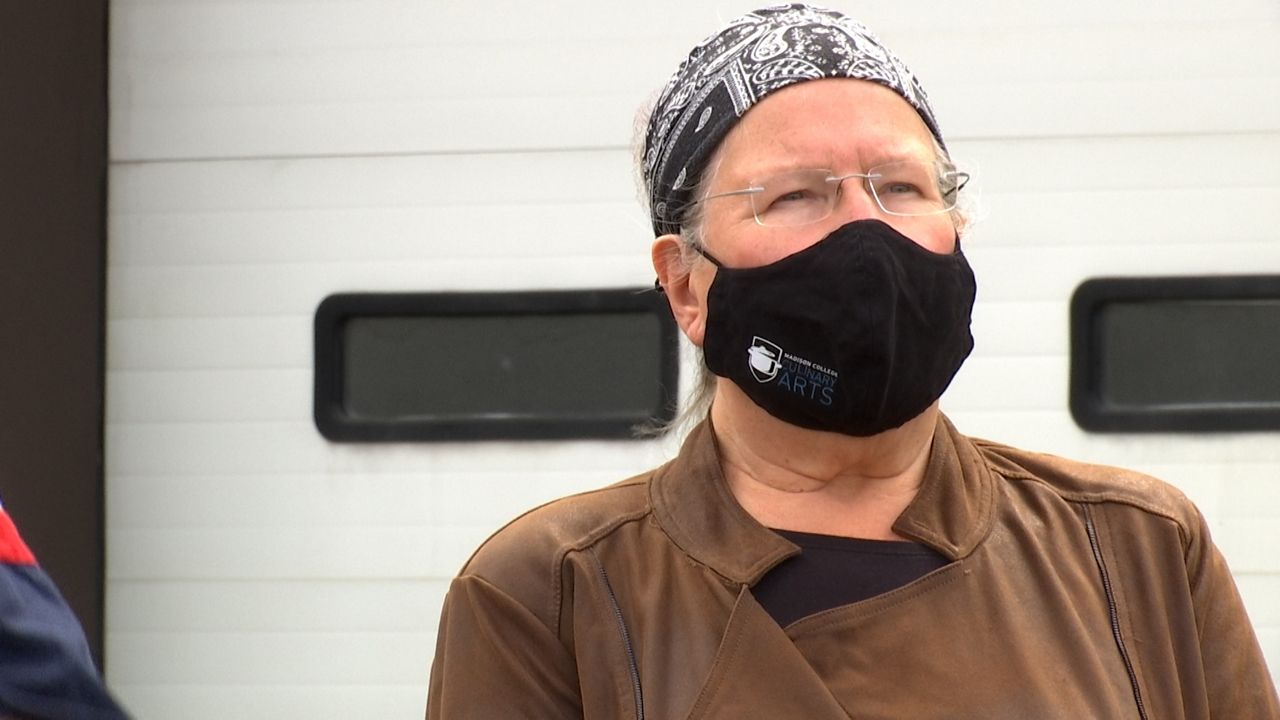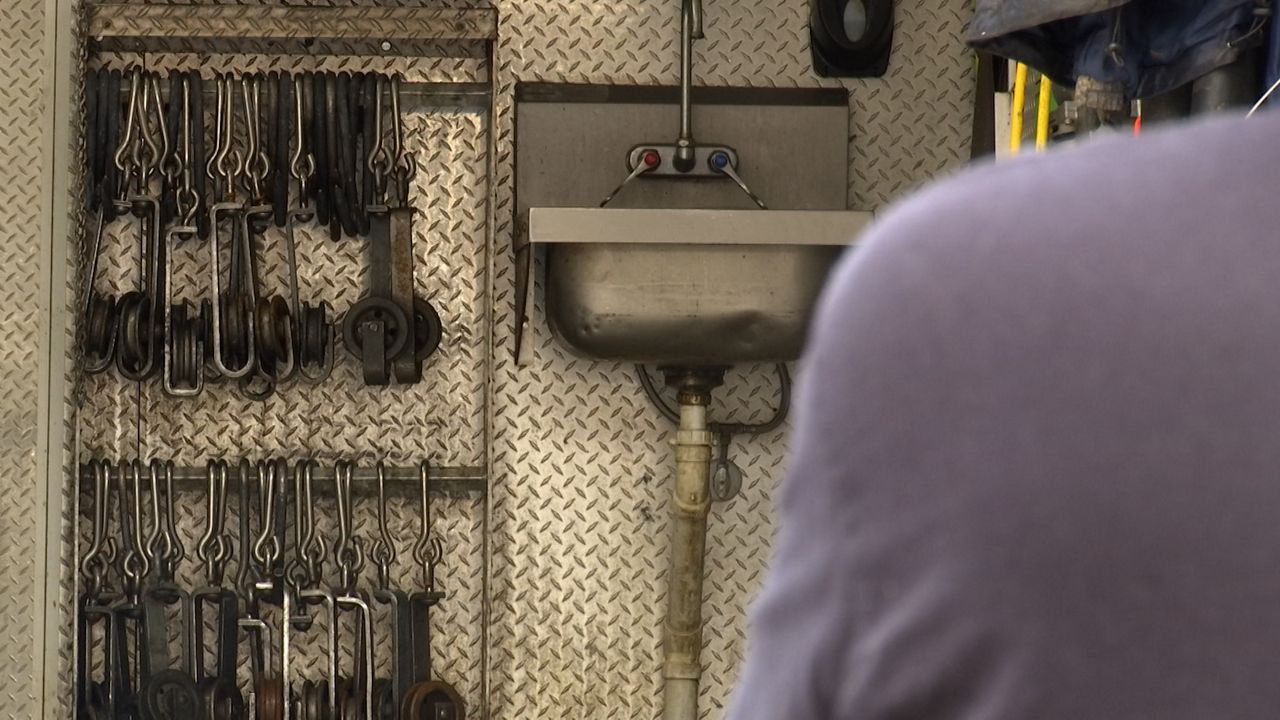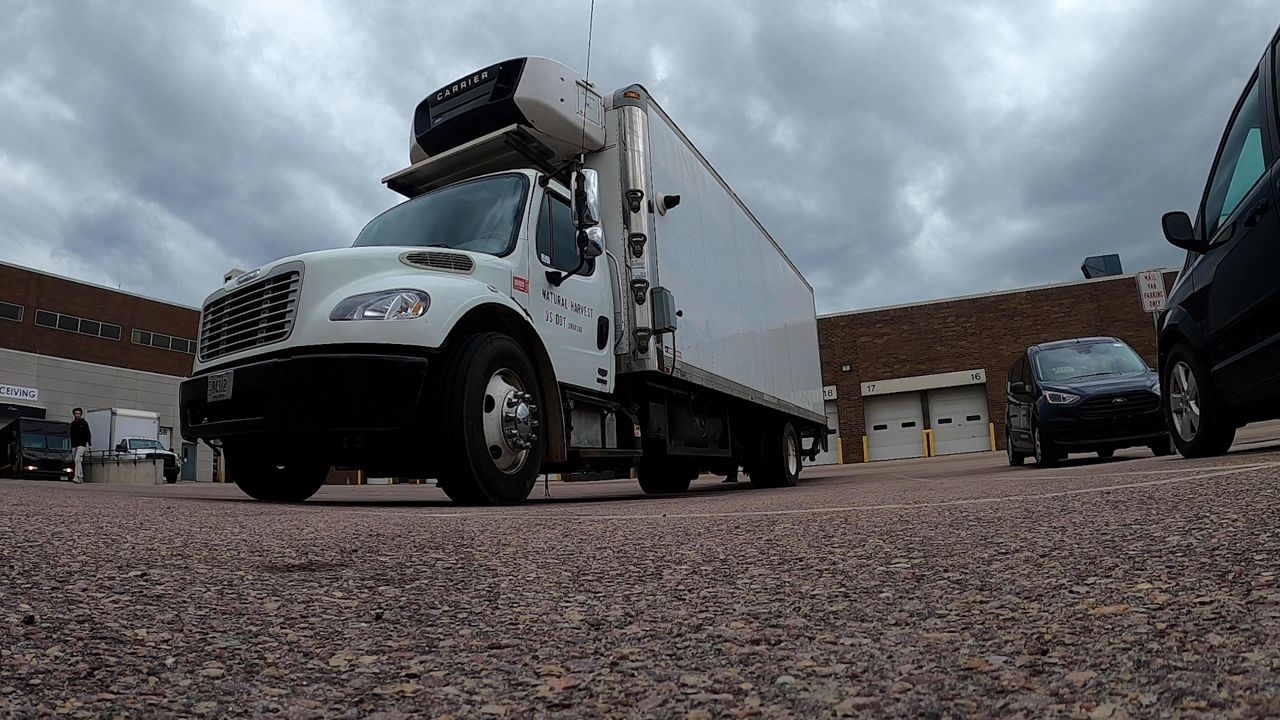MADISON, Wis. — An artisanal modern meat butchery program at Madison Area Technical College is finishing its first year and people in agriculture hope it can bring some much needed reinforcements to a backlogged meat processing industry.
“It's become very clear to everyone that our local processing capacity is really inadequate to the demand and that the large meat processors are incapable of responding rapidly in the case of a situation like the pandemic or any other disruption of the supply chain,” said Hiedi Hoff, a student in the inaugural MATC program.
Hoff moved back to Wisconsin after about 20 years from Canada in 2019. She immediately heard about meat processing issues from a group of southern Wisconsin female farmers known as the Soil Sisters. From there she heard about the MATC butchery program.
“I thought, this is some way I can help and that's what I want to do,” Hoff said.

She and other farmers in southern Wisconsin are working to set up a cooperative where the producers can have a place to take their livestock when it's ready for processing. The goal of the cooperative is to have livestock producers and butchers be equal members of the co-op.
They are working to acquire and upgrade processing facilities, with the goal of launching soon.
“Get ready to start cutting meat in the very near future,” Hoff said.
The groundwork for this butchery technical certificate program at MATC started five years before they took students.
“It's a serious problem, and this problem isn't just isolated in Wisconsin, but it's all across the United States,” said Paul Short, director of the culinary arts program at MATC. “It's something that I'm really proud to partner with others to try and resolve some of the issues. I don't know that we're going to get them all resolved, but to be a part of that.”
Short oversees the meat butchery program. While the bottleneck issues in meat processing have been around a while, the pandemic exposed them further and drove students to the newly-founded program.
“So we filled up the program for this year because a lot of people wanted to learn how to do it,” Short said.
The class size was restricted to 14 this year because of COVID, but it will expand next year to 20 or more. Short said there is plenty of interest in continuing the program.

“Through all of that, people have started to realize that with the shortage of meat there was a real need to learn how to do this craft, there were people that just wanted to know how to do it, so that's where we are today,” Short said.
The hope is students that graduate can help fill meat processing appointments, currently many farmers hare having to book two to three years out with a butcher.
“That's a huge deal, because those animals are investments and they need to be processed,” Short said. “And every day you go past a certain timeline that's costing the farmer a lot of money.”
The Wisconsin Farmers Union has highlighted the program as an element to improving meat processing infrastructure in the state.
“WFU encourages support for programs like the Artisanal Modern Meat Butchery Program at Madison College, which is one of few such programs training in the next generation of butchers,” WFU wrote on its website.

As students are getting ready to finish the program, Hoff said they aren't all looking to start businesses or process right away. But even if they don't they can help fill gaps in processing staffing.
“We're more hands available to cut meat in whatever capacity, and that's what it takes right now, every small and medium processor is looking for staff right now,” Hoff said.
Short says he is working with other technical schools around the state to set up similar programs.



